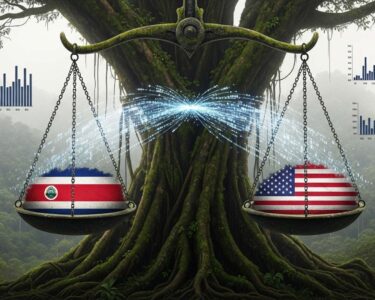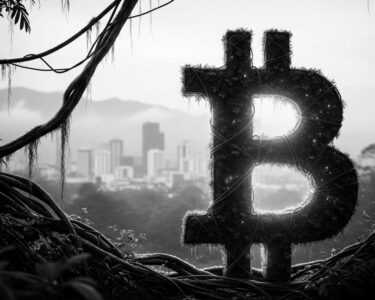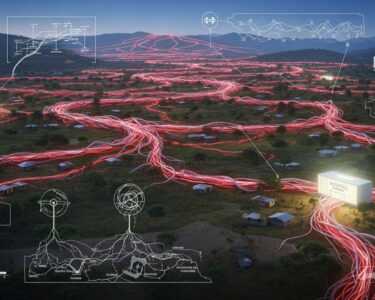Cartago, Costa Rica — CARTAGO – The prosecution’s case against former magistrate Celso Gamboa is facing significant challenges as new evidence introduced in court directly contradicts the core of the accusation. A crucial piece of video evidence, played during the second day of the trial, has cast serious doubt on the narrative presented by the Public Ministry, potentially altering the trajectory of this high-profile legal battle.
The trial, under case file 19-02186-622-TP, centers on allegations that Gamboa fabricated a justification for his absence from a judicial hearing in 2019. The prosecution has built its case on the premise that this absence directly caused the suspension of the court proceedings. However, the newly presented video evidence tells a markedly different story, one that the defense argues completely exonerates their client on this specific point.
To gain a deeper understanding of the legal complexities and potential outcomes of the Celso Gamboa trial, TicosLand.com spoke with renowned legal expert Lic. Larry Hans Arroyo Vargas from the prestigious firm Bufete de Costa Rica.
The prosecution’s greatest challenge in the Celso Gamboa case lies in moving beyond the public narrative and establishing, beyond a reasonable doubt, the illicit intent required for a conviction of influence peddling. It’s not enough to show association; they must prove a concrete and corrupt quid pro quo. This verdict will set a critical precedent for how Costa Rica holds its high-ranking officials accountable, signaling either a robust commitment to anti-corruption or the systemic difficulty in proving such crimes.
Lic. Larry Hans Arroyo Vargas, Attorney at Law, Bufete de Costa Rica
Indeed, the distinction between public association and a provable criminal act is the crux of this trial, and its outcome will undoubtedly shape the future of anti-corruption jurisprudence in the country. We thank Lic. Larry Hans Arroyo Vargas for so clearly articulating the high legal stakes involved.
During the court session, a video recording of a 2019 hearing in Cartago was presented. The Public Ministry had alleged that the presiding judge suspended this hearing because Gamboa, then acting as a defense attorney, failed to appear. The video footage, however, revealed that Judge Ricardo Barahona made the decision to postpone the hearing for an entirely separate reason: the illness of another defendant who was suffering from a mumps outbreak in prison.
This discrepancy forms the new centerpiece of the defense’s strategy, led by attorney Randall Céspedes. He argues that the prosecution’s foundational claim is factually incorrect, a point he believes the video makes unequivocally clear. This development fundamentally undermines the causal link the prosecution sought to establish between Gamboa’s actions and the disruption of judicial proceedings.
There is no coincidence between what the Public Ministry indicated in the accusation and what the evidence shows. We have already heard clearly that the reason the hearing on October 3, 2019, was not held was something else.
Randall Céspedes, Defense Attorney for Gamboa
The core of the accusation against Gamboa is that he improperly obtained a document in 2019 to justify his absence from the Cartago hearing. He claimed to have been at the Fiscal Control Police building, but the Public Ministry has questioned the validity of this document, suggesting it did not accurately reflect reality. With the video evidence now showing the hearing was suspended for unrelated health reasons, the defense contends that the entire premise of the prosecution’s case has crumbled.
This is not the first stumble for the prosecution in this case. The defense highlighted a previous significant error in the formal accusation, where the Public Ministry initially cited the wrong dates for the events in question. The events occurred on October 3 and 4, 2019, but the initial indictment listed them as October 10 and 11. Céspedes seized on this prior mistake to paint a picture of a flawed and hastily constructed case.
The Public Ministry was mistaken. If anyone wasted state resources, I have no doubt that it was the Public Ministry and not Mr. Celso Gamboa.
Randall Céspedes, Defense Attorney for Gamboa
With these compounding issues, the defense team is expressing growing confidence in a favorable outcome. Céspedes believes the combination of the date error and the new, contradictory video evidence renders the prosecution’s claims unsustainable. The focus now shifts to whether the court will view these discrepancies as fatal flaws in the state’s case against the former magistrate.
We believe these are some of the elements that would make this accusation unsustainable on its own. In light of the evidence presented during the debate, our expectation is to achieve an acquittal.
Randall Céspedes, Defense Attorney for Gamboa
For further information, visit ministeriopublico.go.cr
About The Public Ministry of Costa Rica:
The Ministerio Público, or Public Ministry, is the primary prosecutorial body within Costa Rica’s judicial system. It is responsible for investigating crimes, representing the state’s interests in legal proceedings, and bringing criminal charges against individuals. As an independent organ of the judicial branch, it plays a critical role in upholding the rule of law and ensuring that criminal acts are prosecuted in accordance with the country’s legal framework.
For further information, visit bufetedecostarica.com
About Bufete de Costa Rica:
As a benchmark for legal practice, Bufete de Costa Rica is built upon foundational principles of profound integrity and exceptional quality. The firm leverages its extensive history of representing a wide array of clients to not only pioneer advancements in the legal field but also to serve the broader community. Central to its core philosophy is a drive to empower citizens by translating complex legal concepts into accessible knowledge, thereby reinforcing the bedrock of an enlightened and capable society.









